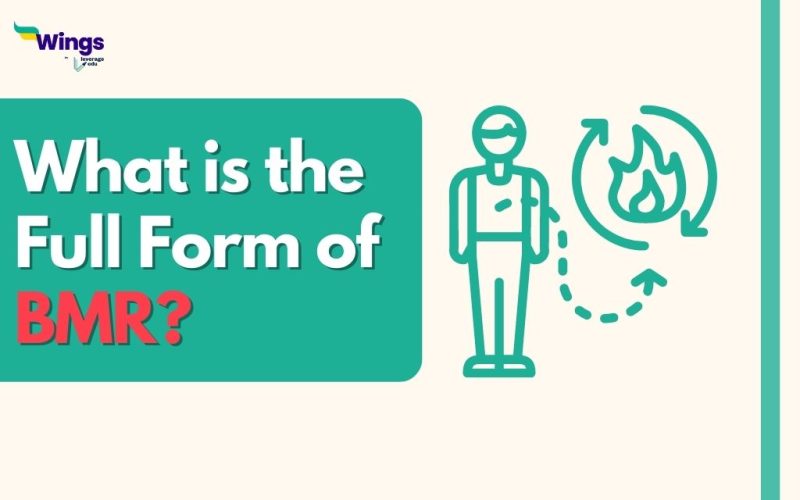BMR full form is Basal Metabolic Rate. It refers to the minimum amount of energy or calories required by an individual to sustain essential bodily functions while at rest. BMR is influenced by various factors such as age, gender, weight, height, and body composition. It represents the energy needed for vital processes like breathing, circulation, and cell production. Understanding one’s BMR is crucial in determining daily calorie needs for weight management. By calculating BMR, individuals can design personalized diet and exercise plans to achieve their health goals. It serves as a fundamental metric in nutrition and fitness, allowing individuals to make informed choices for a balanced and healthy lifestyle.
A Better Understanding of BMR
Table of Contents
- 1 A Better Understanding of BMR
- 2 What Does Metabolic Age Mean?
- 3 How do you determine your BMR?
- 4 How Can You Increase Your Basal Metabolic Rate?
- 5 What Are the Benefits of Increasing Your Basal Metabolic Rate?
- 6 How Can You Lower Your Basal Metabolic Rate?
- 7 What Are the Benefits of Lowering Your Basal Metabolic Rate?
- 8 Are There Any Risks in Increasing or Decreasing Your Basal Metabolic Rate?
- 9 Popular Full Forms
You will fully understand the BMR once you have learned more about it. Your body continues to make energy even when you are sleeping. The body is constantly pumping blood through the veins even as your stomach is burning off the meal for better digestion. People are accustomed to the acronym BMR, which stands for basal metabolic rate, which is the process that is calculated.
Also Read – What is the Full Form of IVF?
Your body needs to ingest about 70% of the calories in order to continue functioning. People frequently begin their weight loss efforts by consuming fewer calories. BMR has a big effect in this situation. Increasing body mass makes a higher BMR more visible. Dieticians use it as a tool to create diet plans for their obese patients.
What Does Metabolic Age Mean?
BMR is short for basal metabolic rate, which varies with age. BMR reaches its maximum during adolescence and then gradually decreases. You can maintain a higher BMR as you age by eating fewer calories. Your metabolic age can be ascertained by contrasting your basal metabolic rate with the average BMR that is normal for your age group.
If you have a higher metabolic age, it’s time to start exercising to burn off the body fat that has been collected. By doing so, you can maintain better physical health and understand BMR as a whole.
How do you determine your BMR?
To determine your Basal Metabolic Rate (BMR), you can use equations such as the Harris-Benedict or Mifflin-St. Jeor formula, which considers factors like age, gender, weight, and height. These equations estimate the number of calories your body needs at rest to maintain basic bodily functions.
P= (10.0 x m/1 kg) + (6.25 x h/1cm) – (5.00 x a/1 year) + s
Here:
P= total energy output during rest(BMR)
M= weight of the person in kgs
H= height of the concerned person
A= age of the incumbent
S= constant, which is +5 for males and -161 for females
Also Read – What is the Full Form of CBC?
It is fairly simple to estimate how much energy is utilised by using thermogenesis, or the body’s age of heat. BMR frequently declines as people age and lose healthy weight (as could happen with maturing). By expanding in bulk, BMR rises. Aerobic (opposition) wellbeing level, a result of cardiovascular exercise, has been proven in the 1990s not to link with BMR when suited to lean body mass, despite recently being thought to have an impact on BMR. (Use of Reference) However (see “high-impact versus anaerobic exercise”), aerobic exercise raises the amount of resting energy used.
How Can You Increase Your Basal Metabolic Rate?
You cannot increase your BMR, but you can instead increase your overall energy expenditure that is total energy expenditure (TEE) through active physical activity. Engaging in exercise can help in weight loss and maintenance.
What Are the Benefits of Increasing Your Basal Metabolic Rate?
Increasing your basal metabolic rate has many advantages:
- Weight loss and maintenance
- Enhanced energy levels
- Reduced risk of heart disease and other long-term health conditions
- Improved self-esteem
How Can You Lower Your Basal Metabolic Rate?
It is not possible to decrease your basal metabolic rate, but you can lower your total energy expenditure by reducing your physical activity.
What Are the Benefits of Lowering Your Basal Metabolic Rate?
Decreasing your basal metabolic rate offers a few benefits :
- Weight loss
- Decreased energy levels
- Lower risk of heart disease and other chronic conditions
- Improved self-perception
Are There Any Risks in Increasing or Decreasing Your Basal Metabolic Rate?
There are no direct dangers in increasing or decreasing your basal metabolic rate, but it’s important to note that being overweight or obese can however increase the risk of heart disease, type II diabetes, and other long-term health issues.
Popular Full Forms
We hope this blog has helped you understand the full form of BMR and everything related to it. If you want to know more, find the 300+ full forms list on our blog. In the world of short forms, you can rely on the Leverage edu page to know about more full form like this! Connect with us study abroad experts to achieve your international dream today!
 One app for all your study abroad needs
One app for all your study abroad needs














